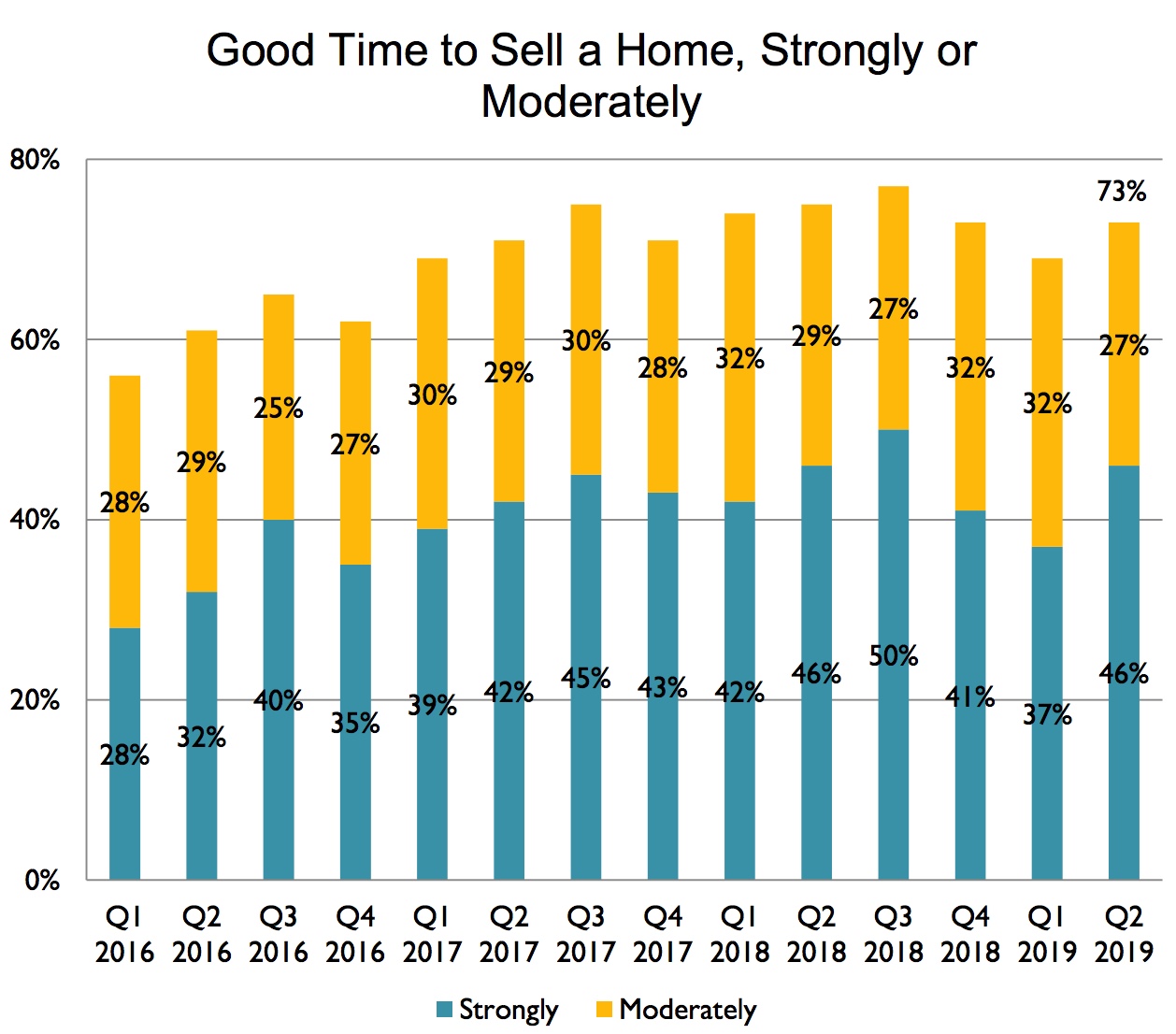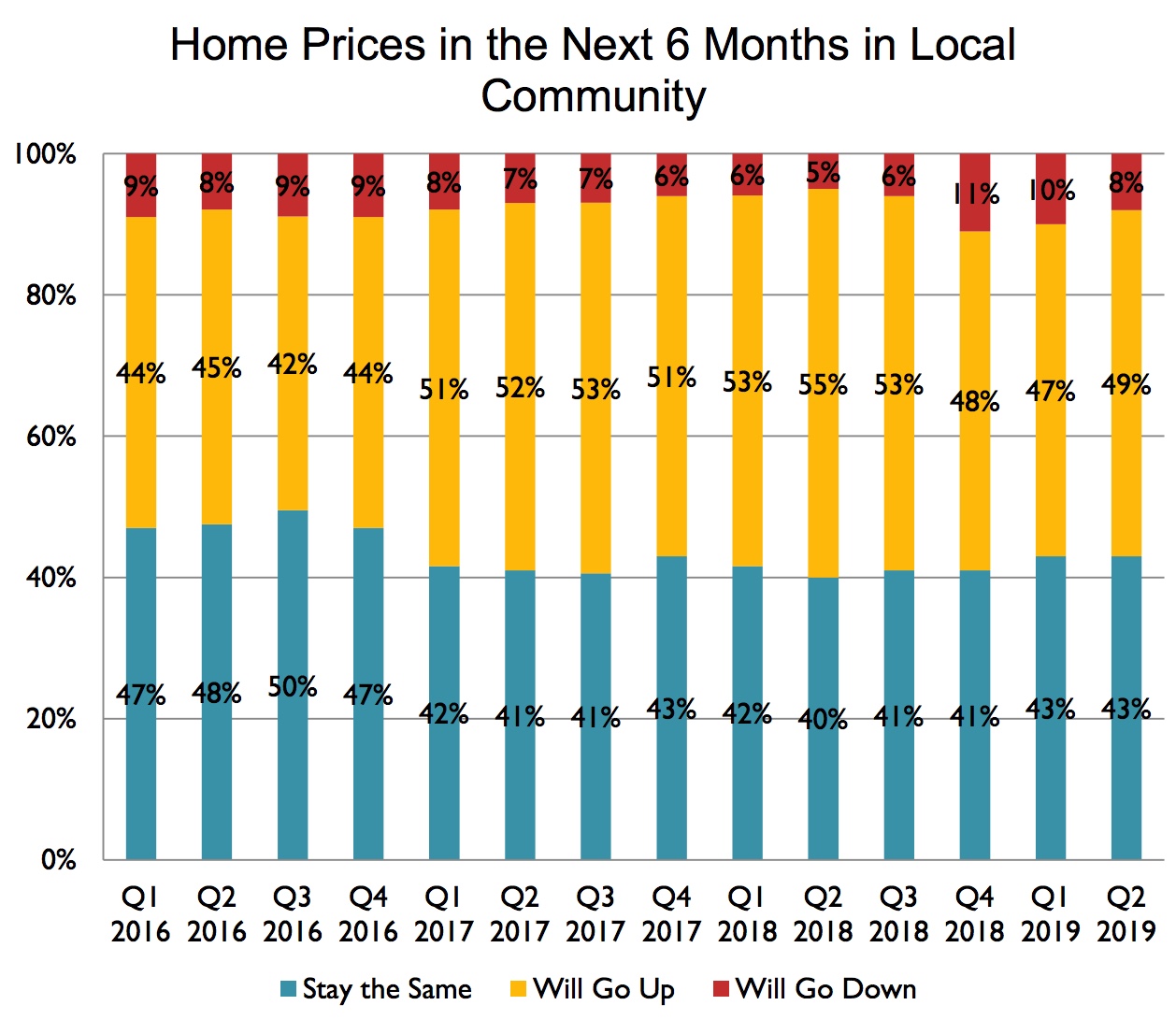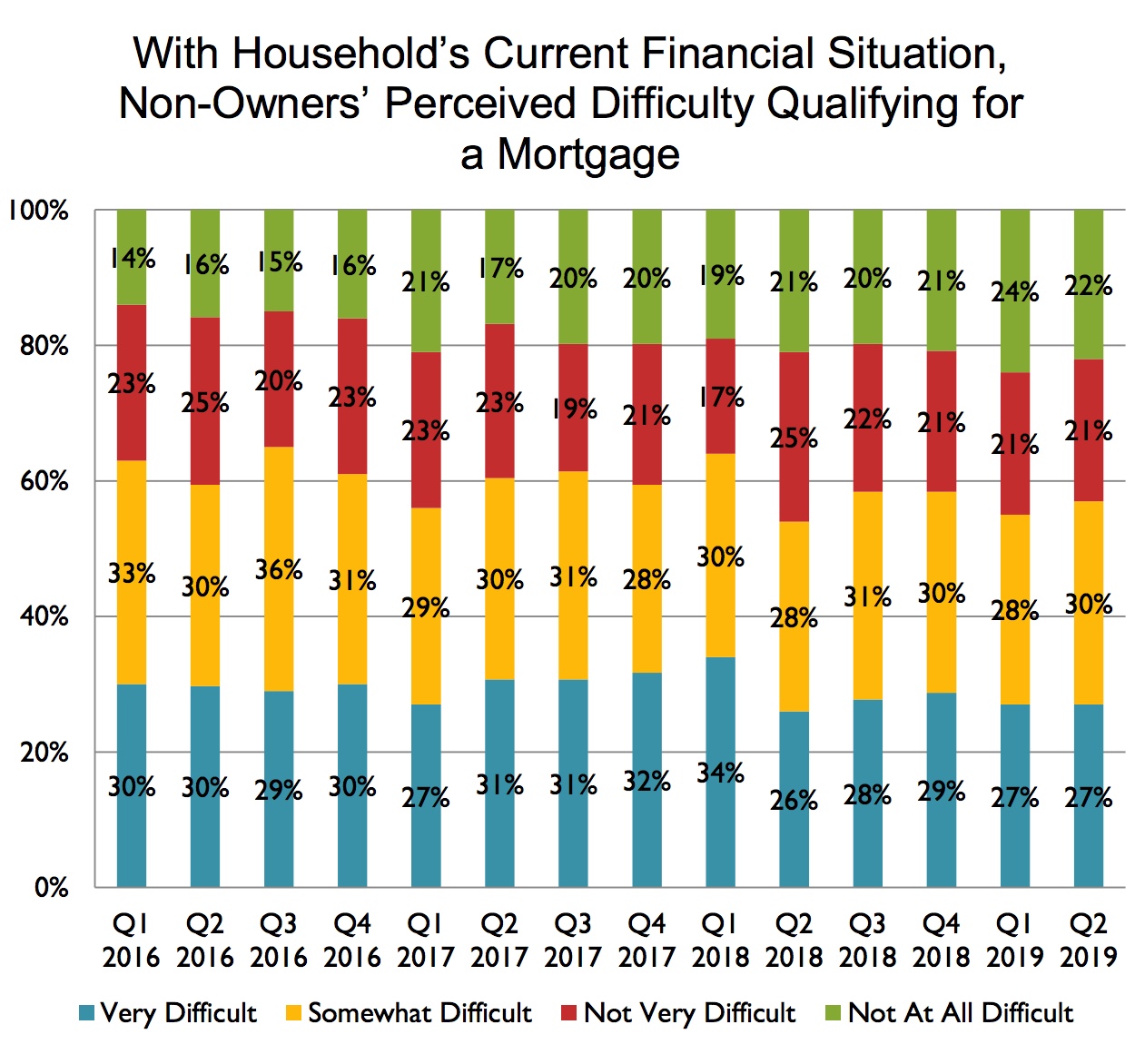The second quarter HOME (Housing Opportunities and Market Experience) survey from the National Association of Realtors® (NAR) appears to indicate that a period of softening price increases and lower interest rates have only slightly improved the sentiment of potential homebuyers. Survey respondents who say it is a good time to buy a home remained at 65 percent although those who strongly felt so dipped by one point to 27 percent and those with a moderate opinion rose 1 point to 38 percent.
Opinions about selling were more fluid. Seventy-three percent of respondents said it was a good time to sell, up from 65 percent in the Q1 survey and those with a strong opinion increased from 37 to 46 percent.

The good time to buy sentiment was shared by two-thirds of respondents in three of the country's major regions, however, only 56 percent of those in the West agreed. Older age groups and those with higher household incomes were more likely to say it is a good time compared to only 54 percent of Millennials and 62 percent of Gen X respondents. Responses about selling were more evenly distributed across all groups.
NAR's chief economist Lawrence Yun notes that home prices have increased only moderately and says that is a contributing factor as to why the overwhelming majority feel that now is a good time to sell. "With home price appreciation slowing, home sellers understand that the days of large price gains from holding an extra year are over."
The survey also asked for opinions about the economy. Fifty-five percent of those polled said that the economy is improving compared to 53 percent in the prior survey. Optimism was greatest among those who earn $100,000 or more and those who reside in rural areas. Fifty-three percent of Gen Xers said they believe the economy is improving, which is also up from 50% last quarter.
Yun said Gen Xers might have more financial pressures compared to other age groups. "Many in the Generation X population find themselves needing to purchase multi-generational homes. Also, they may be feeling financial stress from caring for aging parents and children of all ages. Nonetheless, they have an optimistic outlook about the future," he said.
Sixty-three percent of people believe that prices have gone up within their communities in the last 12 months up 2 percentage points from Q1. Thirty percent believe prices have stayed the same and seven percent said prices have gone down. Not surprisingly, those living in the West were most likely to report higher prices (69 percent), although a large majority of those in other regions said the same.
Respondents were also asked to share their thoughts on future home prices in their neighborhoods. Forty-three percent said they believe prices will remain the same in their communities over the next six months, about the same as the prior quarter and 49 percent expect to see a price increase.

Among those surveyed who do not currently own a home, 27% said they believe it would be very difficult to qualify for a mortgage due to their financial state; 30% said it would be somewhat difficult to qualify.

Yun said that mortgage affordability was promising over the second quarter, and he predicts this trend will continue. "Lower mortgage rates, along with job and wage growth, will lead to an increase in sales and thereby contribute positively to economic growth in the upcoming quarters."
NAR surveyed a random sample of 900 U.S. households by phone in each month of the second quarter. Data was compiled for this report representing a total of 2,708 household responses.







